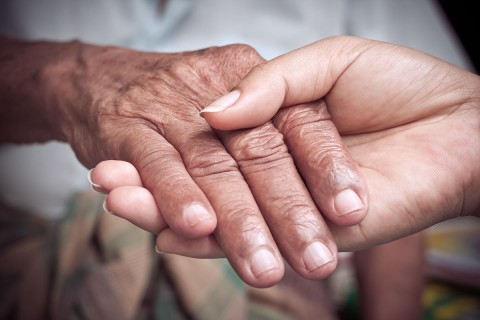The grace of holding my dying father’s hand during the pandemic
The word contagion comes from the Latin words for “with” and “touch.”

My father died on May 15 last year, his mother’s birthday, at the age of 80. As anyone who has lost a loved one during the pandemic knows, sickness and dying and grieving—the realities themselves and the rituals by which we mark them—have been fundamentally altered. Death had other cruel tricks up its sleeve this year, and we probably shouldn’t have been surprised.
I was with my father when he died. The nursing home where he was a patient suspended the ban on visitors for me for those last hours—a dubious decision, perhaps, given the strict protocols, but as compassionate an act of health care as I have ever received. Or was it heart care? A little more than a year later—how has it been a year already?—I think about those hours in that small room where I sang, prayed, whispered, and wept as my father entered death’s dark door.
I remember his body—how small he became in death. I remember his hands, and how I held them in those hours, kissed them, pressed them to my cheek. And now I think of his hands in life—expertly shuffling a deck of cards, resting on my sons’ shoulders in gestures of affection and encouragement, rough and weathered from decades of plowing, planting, watering, weeding, and harvesting a bounteous garden that was his deep delight.




